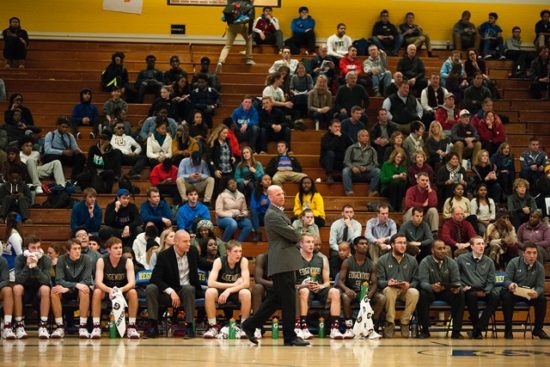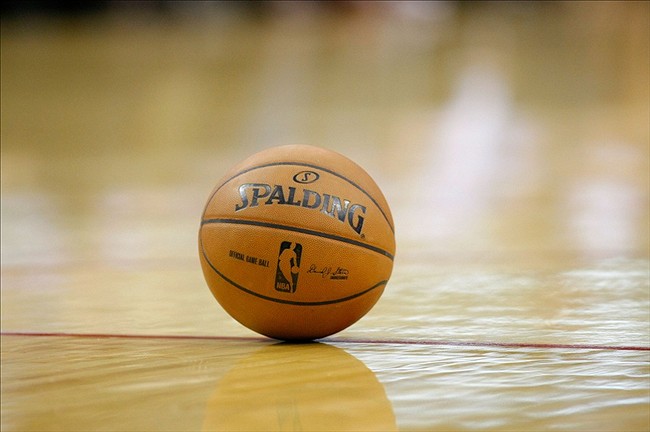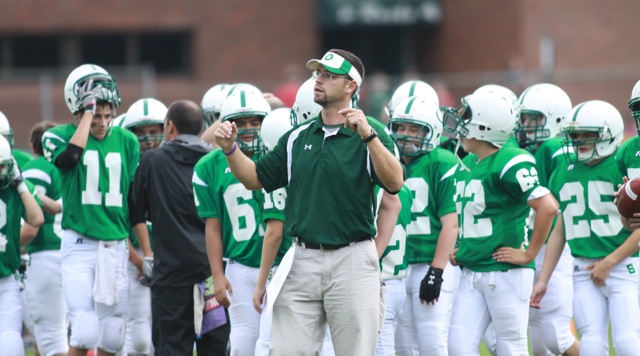Handling the parent problem in your school
Recently, we surveyed our readers on an issue that grows more complicated by the year. Parents have become more emboldened about confronting coaches on issues such as playing time, roles on the team and proper exposure for their son or daughter to earn a college scholarship.
 Through the emergence of social media sites like Facebook and Twitter, along with the evolution of email and text messaging, parents can more easily access coaches and express their thoughts.
Through the emergence of social media sites like Facebook and Twitter, along with the evolution of email and text messaging, parents can more easily access coaches and express their thoughts.
“Social media/email and cellphones/texting have given more (parents) a way to complain, inquire and vent without a personal meeting,” says Susie Morris, the athletic director at Munroe Day School in Quincy, Fla.
This allows them to either be braver or just more anonymous while asking questions parents wanted to ask years ago, but didn’t want to do in person. We are too accessible.
Pay-for-play, a concept that continues to build momentum across the country as school districts deal with budget issues, also has given parents the feeling they have more of a say in their son’s or daughter’s team than in the past.
“The biggest change from parents is a sense of entitlement due to the fees associated with participating in a high school sports program,” comments Barry Bokn, athletic director at Willamette High School in Eugene, Oregon.
Pay-to-play is the norm in Oregon high schools, and therefore, if a son or daughter is unhappy, then the parent is unhappy.
“Because parents pay a fee for their child to play, they feel they are entitled to be heard and have policy changed to suit them if something comes up,” explains senior basketball coach Gib Hinz of Kelowna Christian School in Kelowna, British Columbia.
As fees increase and social medias impact grows, it’s difficult to see the tide turning toward making the parent problem easier to handle.
We asked our readers to identify some of the major problems that coaches and athletic directors have to manage in their jobs in regards to parents, and provide details on how their schools deal with this issue. The following solutions to the parent problem were offered:
1. Don’t talk playing time.
Many coaches tell parents immediately that discussions about playing time are off-limits.
“The best way that we’ve limited parent complaints from the onset of the season and throughout the season is to tell parents at the parents meeting that playing time is non-negotiable, and each player will know what their role on the team is,” says Dave McIntosh, the assistant girls basketball coach at Evergreen High School in Vancouver, Washington.

“We will also not talk about other players to parents, but we will discuss what the parents child can work on to improve their game and what the importance is of their role on the team during the season.”
David Russell, the assistant varsity girls basketball coach at Providence Day School in Charlotte, N.C., says his program establishes the ground rules for playing time protocol at the seasons first meeting.
“We communicate to our players that we like each of our players; they wouldn’t be on the team if we didn’t and, frankly, we would play that chair over there if we thought it could help us,” he explains.
“The players that get the most playing time are the ones that — based on practice, work ethic, attitude, team play, etc. — give our team the best chance to be successful. If there is a concern with playing time, we want to hear that from the athlete.
”All coaches know and respect that players would like more playing time. No coach minds when a player comes and asks, ‘Coach, what are the things I need to work on to earn more playing time?’ We encourage that.”
Should parents travel down the playing time path, it may not be the words they want to hear.
“Face-to-face informal meetings are fine with me, as long as they aren’t right after a frustrating loss,” says New Berlin CUSD 16 softball coach Brian Bandy of New Berlin, Illinois. “I have told parents we can discuss playing time, but I may give an honest answer that your child isn’t good enough to play or start.”
2. Be open, honest from the start.
We’ve all heard the cliché “honesty is the best policy,” and it’s a phrase coaches and athletic directors heed. It’s never too early to let parents know where you stand.
“I control the whole program. Parents know me right from the start,” says Joey Reome, who runs the entire basketball program from kindergarten to 12th grade at St. Lawrence Central in New York.
“I am brutally honest from the get go. I make parents aware that even though your kid plays in the fifth grade (where most rules state, ‘No cuts, all play’), it doesn’t mean they will make the team or be in the rotation when they get older.
“I always tell parents that all coaches at the varsity level normally go with 7-8-9 man rotations, and I carry an I don’t give a damn attitude.
“I constantly say, ‘As soon as someone wants to step up and put in the time I do, well here’s the whistle.’ That usually shuts them up.”
One athletic director encourages his coaches to talk to parents face-to-face when an issue arises.
“Open dialogue is always the best policy. However, be clear about when and how this dialogue will occur,” athletic director Bokn comments. “I always ask our coaches not to get into arguments using email or texting. If there is a conflict, this is always done best face-to-face.
“The coach who attempts to avoid dialogue with parents is the coach that will have difficulty. The better the communication and more transparent the coach is, the higher level of success they’ll have.”
Nobody’s perfect, and we can always learn from our mistakes. One parent may push your buttons too far and take you to a place you don’t want to go. It’s wise to grow from the mistake and make it a learning experience.
“Be human, listen to parent concerns and if you handled a situation poorly, apologize for the mistake and move on,” says Francis Scott Key High School basketball coach Ryan Kimble of Westminster, Maryland.
3. The 24-hour rule.
Many respondents stressed the importance of this rule. Don’t take a meeting with a parent for at least 24 hours after a game is finished — a parent cooling-down period.
“Make sure the coach knows the policy about a 24-hour wait and refuse to talk to a parent after a game,” Morris advises new coaches in regards to issues with parents.
Not only does instituting such a rule help parents calm down, but it lets coaches clear their minds too and lessens the chances of an ugly, regrettable confrontation.
“Do not come to me to talk about anything on the day of a game — before, during or after,” requests Mark Collett, girls basketball coach at Leslie County High School in Hyden, Kentucky.
“I explain that I am human and my emotions are not focused on talking to parents on those days. Im focused on game preparation or reflection.
“I say that I value my family, my job and my coaching, and all my meetings should be scheduled. All of these have helped tremendously with disgruntled parents.
“They don’t want to go through all that trouble. If they don’t follow those guidelines, I end all conversation that tries to start outside those limitations.”
4. Preseason meeting suggestions.
The preseason meeting is an opportunity for coaches to not only lay out the rules for parents, but to get to know each other better and establish a comfort zone.
“We allow the athletic administrator to visit with parents and explain the philosophy of the athletic program, then we have breakout sessions with each head coach and their parents to answer general questions about the upcoming season,” athletic director Bokn says.
 “The chain of command is explained at our parent night and typically this works fairly smoothly during each sports season. I ask the parent to visit with the coach prior to contacting the athletic director, principal or superintendent.
“The chain of command is explained at our parent night and typically this works fairly smoothly during each sports season. I ask the parent to visit with the coach prior to contacting the athletic director, principal or superintendent.
“I’ve been able to convince my superiors to not get too involved without asking if this chain of command has happened.”
At his schools preseason meeting, Bradley Smith, a coach at Union City High School in Edinboro, Pennsylvania, goes out of his way to make sure that the parents are part of the program and will be a key to whatever success is attained.
“I think what may be different in our approach is we do not only talk about the parents role in our program, we address everyones role within the program, including coaches,” Smith says. “We share any information we can to build trust.
“We also let them know up-front that we, as coaches, are going to make mistakes. We try to generate the mindset that everyone involved is human. It’s how we respond to those mistakes that will determine our success.
“We also let the parents know that we will never do anything to intentionally harm their childmentally or physically.”
5. Communication is key.
Many coaches and athletic directors have children of their own and understand that parents are looking out for their kids when they ask questions.
“Remember, each parent is trying their best to be an advocate for their (child). They really don’t want to attack you as a coach, so don’t take their attacks personally,” advises North High School head varsity basketball coach Michelle Peplinski of Eau Claire, Wisconsin.
“Try to see their perspective as the caring parent they are trying to be, and help them see how you, as a coach, need to keep everyones child and the overall goals of the program in mind as you make decisions.”
Just as the Internet — through social media sites and message boards — can harm a coach’s efforts, it also can be a resource to assist in keeping parents informed and a part of the program. Many programs have websites or send out regular newsletters and emails to keep parents informed.
“During the season, we make sure the parents know schedules, events, game times, etc. All handouts the players get, the parents get as well,” comments coach Hinz. “Never assume players will tell their parents.
“We have a team website the parents love. It’s updated constantly and helps create fun with the parents, and it keeps them enthused about your program.”
The parent problem isn’t going to go away, but with a little bit of patience and a positive attitude, the experience doesn’t need to always be combative.
“Parents feel they have a right to be heard, and if it is the proper time, situation and the communication is mutually respectful, that can be a good thing and a positive experience,” explains assistant coach Russell.
Communicating and building rapport with parents should not mean a coach compromises any of their meaningful expectations or philosophies.
“Communicate, communicate,” emphasizes Steven J. Borer, the assistant principal and athletic director at Seward High School in Nebraska. “Never assume that the parents understand or see your side all the time.
“Be civil and treat parents respectfully, even when it is difficult to do so. And, keep your athletic administrator involved in whatever you do. Most athletic directors don’t like surprises.”
One thought on “Handling the parent problem in your school”
Leave a Reply
You must be logged in to post a comment.






Another great article to help coaches help themselves… Thanks for sharing. Nice to see MTV coach in the mix in Vancouver, WA. Many parents go way to far and have way to much power even if coaches take these steps and have a contract signed by players and parents.